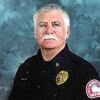Decision-making is difficult. Gallant intentions and a noble purpose are not enough to ensure that a good decision is being made. Nor is title.
Decision-making skills do not come with promotion. Education, practice and continuing analysis, combined with common sense that’s free of conflicting or distracting elements, are the keys to productive decision-making.
Unfortunately, ego can sometimes derail decision-making efforts – a problem that can compromise the safety of the team and disrupt crew cohesion.
Decisions rooted in ego
One expression you might hear around the firehouse is, “Their ego is on their badge.” The expression may not be crystal clear, but it describes a leadership flaw that we all have experienced.
Remember the first time an officer pointed to their badge in a moment of frustration and exclaimed, “See this?” as if that made everything they said right and just. Whether expressed from undue fear or feelings of inadequacy, demanding authority at the cost of respect really only drives a lack of respect. While the short-term effect may be unquestioning compliance or the confirmation of authoritarian rule, the fallout is worse than any benefit gleaned from the immediate outcome.
Now more than ever, firefighters and officers alike want to know the why of things. Blind obedience as criteria for followership reward is long past, gone with rubber boots and steam engines. Today’s firefighter seeks to understand the big picture in order to apply acquired knowledge and practiced skills in a constructive and progressive manner.
When difficult questions are filtered through an egotistical reply, the result is often an inadequate resolution, or worse, posturing for effect with no real response at all. This may have worked in centuries past but not in today’s fire service. These types of behavior not only delay member development but also deteriorate confidence while derailing the all-important linchpin of leadership – TRUST.
Ego’s value comes from the person
Ego is not all bad, though. In fact, it is critical to our sense of self. A well-adjusted ego gives our life meaning and a motivation that results in satisfying directions. It is why we do what we do next.
For some firefighters, the badge may be the only reasonable place to put our ego, the only symbol of value we have in our career and, quite possibly, in our lives. We worked long and hard for each promotion, given up much to educate ourselves and others, and are constantly reminded how critical the job is to so many in our lives and our community.
While its existence is important, ego’s value does not emanate from the badge, patch or brass; rather, it comes from you as a person. The Aristotelian proof of this is simple and direct. If we admit there are good chiefs and bad ones, effective captains and incompetent ones, then logic dictates that an officer’s worth is independent of rank and symbol, that aptitude and talent stem from the person and not the position.
Think about it another way: If this were a false premise, then all officers would be great simply because they are officers. Unfortunately, we know this is not true. Solid decision-making skills don’t come with the position. This is why it is so vital for these skills to be cultivated and honed. After all, it is the officer’s job to embrace the responsibility, accept the consequences, live with the outcome and deflect any credit.
Fostering a balanced ego
Ego does not exist successfully without honest scrutiny and evaluation. Balancing ego and its ability to promote confidence and decisiveness, together with the objectivity and situational awareness that come from a real sense of social conditions, is a difficult and dynamic task – one worthy of a fire officer.
Ego alone produces narrow concepts emanating from superficial beliefs. This is why ego is not effective when it rests solely on our badge and not in our being.
By occasionally examining what we find worthy of our promise as human, we build a foundation to accept new and different ideas while holding onto the basic values of officership.
Egos should be benevolent and creative enough to make our careers worthwhile and our lives meaningful. The rest is the job.













